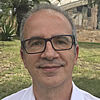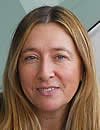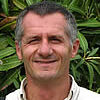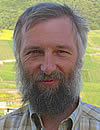Eustachio TARASCO
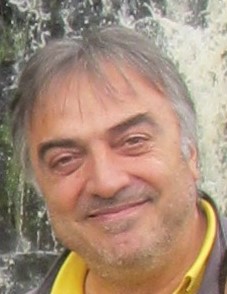
Short CV
Eustachio Tarasco obtained the PhD in “Entomology” in 1995 and currently he is Associate Professor at Department of Soil, Plant and Food Sciences, University of Bari “Aldo Moro” (www.uniba.it/ricerca/dipartimenti/disspa), where he teaches ” Entomology and Zoology” and “Faunal biodiversity Management”. Most important Academic career and training: 1996, 3 months, Dept. Biological Control & Quarantine (Poznan Poland); 1999, 2 months, Dept. Entomology, Oregon State University (Corvallis, USA); 2003, 2004 & 2007, for a total of 4 months, Dept. Biotechnology and Biological Control (Kiel, Germany); 2009 & 2010, for a total of 8 months, Visiting Professor at Dept. de Ciencias y Recursos Agricolas y Forestales (Cordoba, Spain); 2010, 2011, 2012 & 2016, 1 week per year, Erasmus Teaching program, Boku University (Wien Austria). He is associate to CNR-IPSP since 2012 and in March 2017, he achieved the National Academic Qualification as Full Professor.
His research interests are focused on: Urban and Forest Entomology – sustainable planning and management of forest, urban and periurban pests, ecological role of insect populations in forest, urban e periurban areas; Insect Pathology and Microbial Control – biodiversity, morphology and biology of entomopathogenic nematodes and fungi in Mediterranean ecosystems and evaluation of their potential as biological control agents of insect pest populations; Ecological Biodiversity – evaluation and monitoring of entomological and ornithological biodiversity in natural and urban areas. Recently he also carries out research on strategies for protecting forest resources by xilophagous pests in mediterranean ecosystems. The academic achievments include a total of more than 190 publications including original research papers on national and international reviews (90), monographs (4), scientific reports and comunications presented at international and national conferences (98).
Involved as a coordinator, consultant or technical advisor in several national and international projects, he first joined the IOBC-WPRS Working Group “Insect Pathogens and Insect Parasitic Nematodes” in 1999 in Wien, and participated in the meetings of Athens, Schoss Salzau (Kiel) Locorotondo (Bari), Alès, Pamplona, Innsbruck, Riga and Tbilisi.








